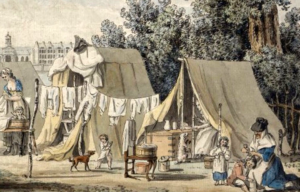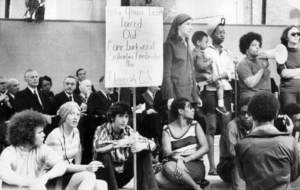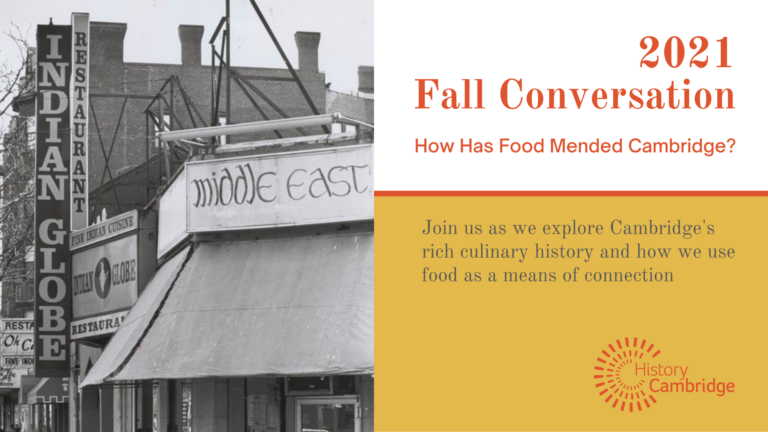
Fall Conversation: How Has Food Mended Cambridge?
Mon November 15, 2021
Over the course of 2021, History Cambridge has been exploring the ways in which the city has repaired its social, economic, and political fabric in the wake of historical crisis points—as well as the ways in which the need for mending remains. As a means of both physical and emotional nourishment, food has played a central part in the creation of family and community ties in the city. On November 15, we held our Fall Conversation, “How Has Food Mended Cambridge?” In a jam-packed session we heard from four speakers about the food scene in Cambridge from the 20th century to the present, exploring the ways in which Cantabrigians ate, drank, and found community in the city’s restaurants, coffeehouses and ice cream shops.
Dr. Merry White of Boston University shared her personal experiences as a young teenager coming to Cambridge in the 1950s, and described the world of the city’s coffeehouses, which functioned as spaces not only for a caffeine boost but also for political and cultural self-expression. White also discussed the ways in which eating the cuisine of another ethnicity or class (most notably at Peasant Stock) was an expression of solidarity with working people around the world in the turbulent class struggles of the 1960s and 1970s. Stephen Chen, President of Joyce Chen Foods, shared his experiences growing up in a family whose matriarch introduced Chinese cuisine to the mainstream in Cambridge and beyond through her restaurants, cooking classes and cookbooks. Many in the audience shared their own memories of eating at one of Joyce Chen’s restaurants and having the chef and proprietor take time to sit and talk with them.
Boston University’s Dr. Megan Elias took us on a virtual tour of restaurants, lunch counters and ice cream shops of the early 20th century, noting that dining out was a relatively rare occurrence in formal restaurants, but that smaller cafes and shops serving lunch and treats to the working people of Cambridge dominated the food scene in the 1910s and 1920s. Gus Rancatore, founder of Toscanini’s Ice Cream, told us about his experience as a restauranteur, sharing his relationships with other small business owners in the city and relating how he has seen the culture of food change over the last several decades. Rancatore and our other speakers concluded by speculating on what is next on the Cambridge restaurant scene, especially the ways in which shifting immigration patterns will bring new types of cuisine to the city in the coming years.
Thanks to the generous support of CambridgeSeven and Marriott Boston Cambridge, this program was free and open to the public.

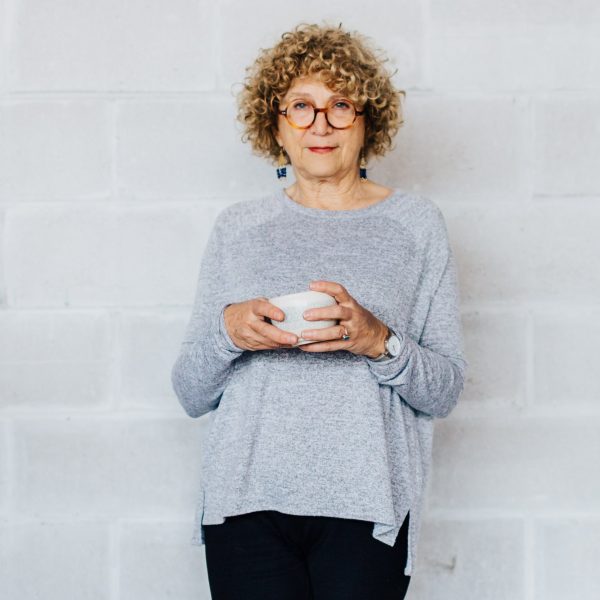
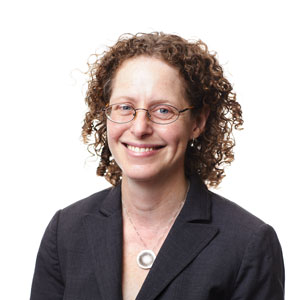

Stephen Chen is son of famed Cambridge chef Joyce Chen and the Owner and President of Joyce Chen Foods. Founded in 1958 and based on the standards and recipes of Joyce Chen, an innovator of northern-Chinese cuisine, Joyce Chen Foods manufactures and distributes healthy innovative Asian sauces, condiments and more. Born and raised in Cambridge, Stephen Chen is dedicated to preserving and sharing his mother’s legacy in the city’s culinary history.
Merry (“Corky”) White is Professor of Anthropology at Boston University, with specialties in Japanese studies, food, and travel. A caterer prior to entering graduate school, she has written two cookbooks, one of which—first published in the mid-1970s—was recently reissued by Princeton University Press. Her current project is Don’t Tell the Kinder, a family history of art and rescue in the exhibition, “Try All What is Possible”: How Emil Singer’s Art Saved Lives, 1936-1942.
Megan Elias is a historian and gastronomist whose work and research explores the rich history of food and culture through prisms of food writing, markets, and home economics. In addition to developing curricula and producing online courses, Dr. Elias has designed and taught classes in the areas of food studies, food in world history, American women’s history, and African-American history. Elias is the author of Food on the Page: Cookbooks and American Culture (2017) as well as other books, book chapters, and articles about food history.
Gus Rancatore is the co-founder of Toscanini, the Cambridge-based shop that The New York Times says makes “the best ice cream in the world.”
Thank you to our sponsors:



